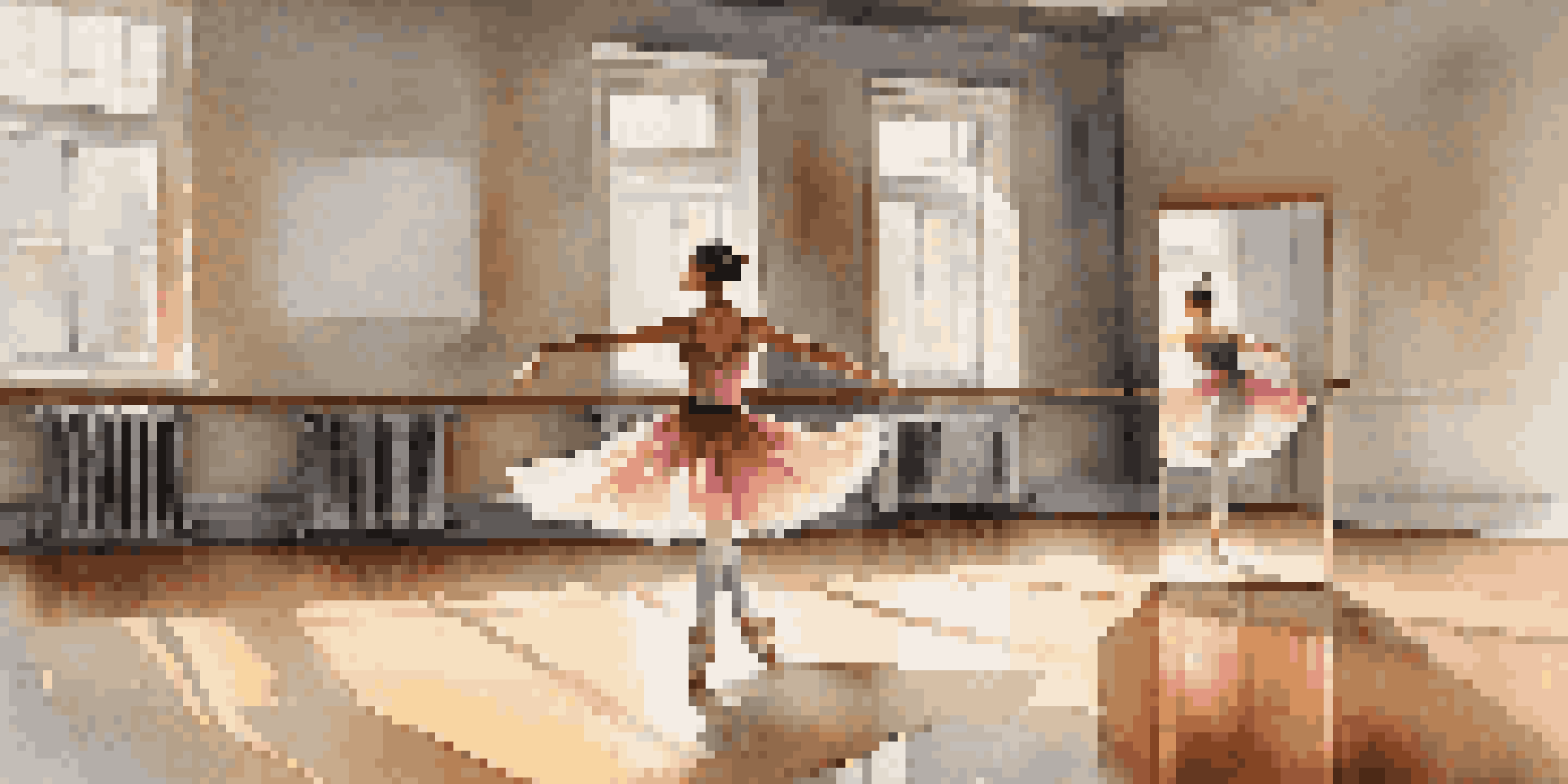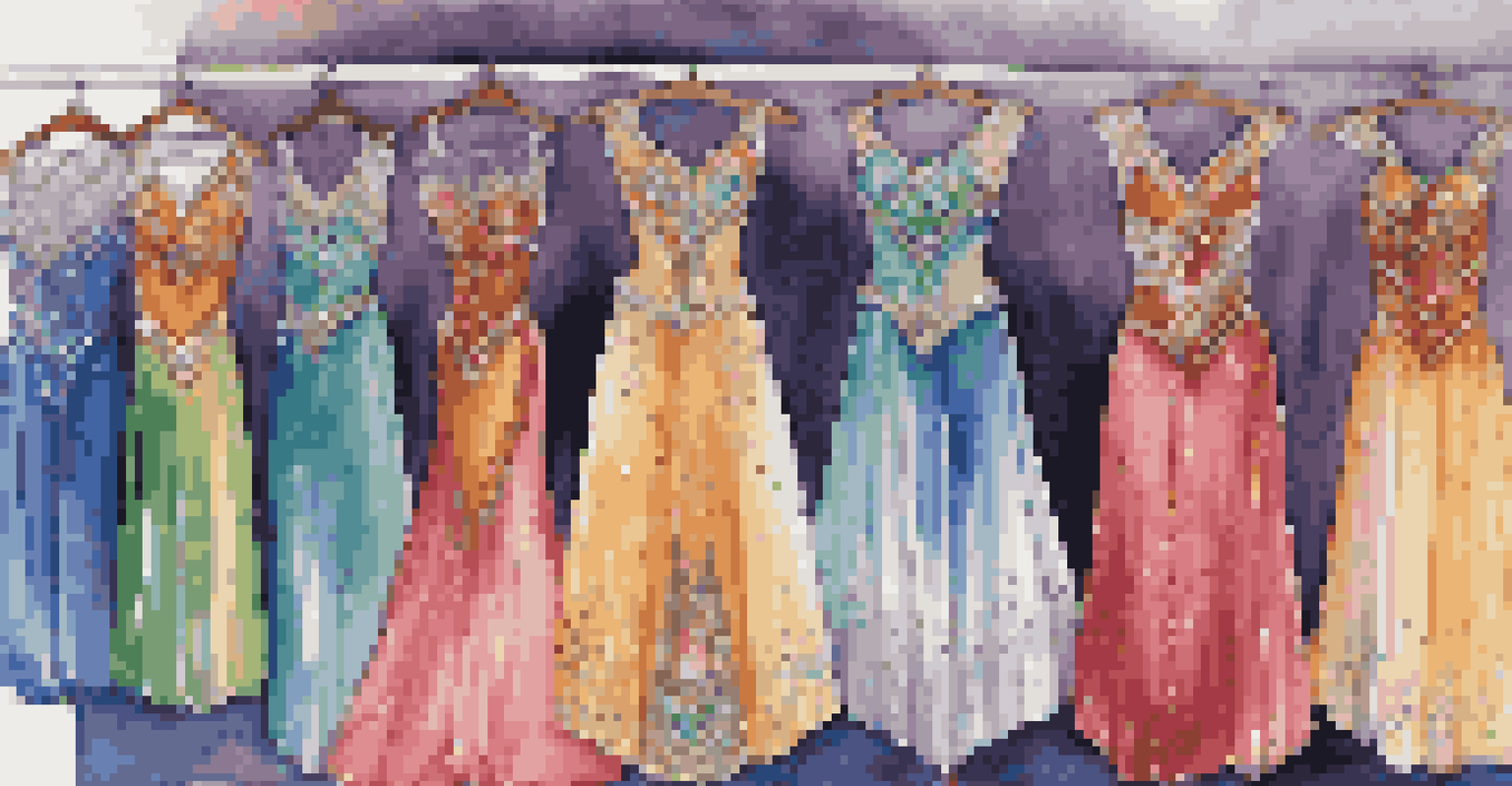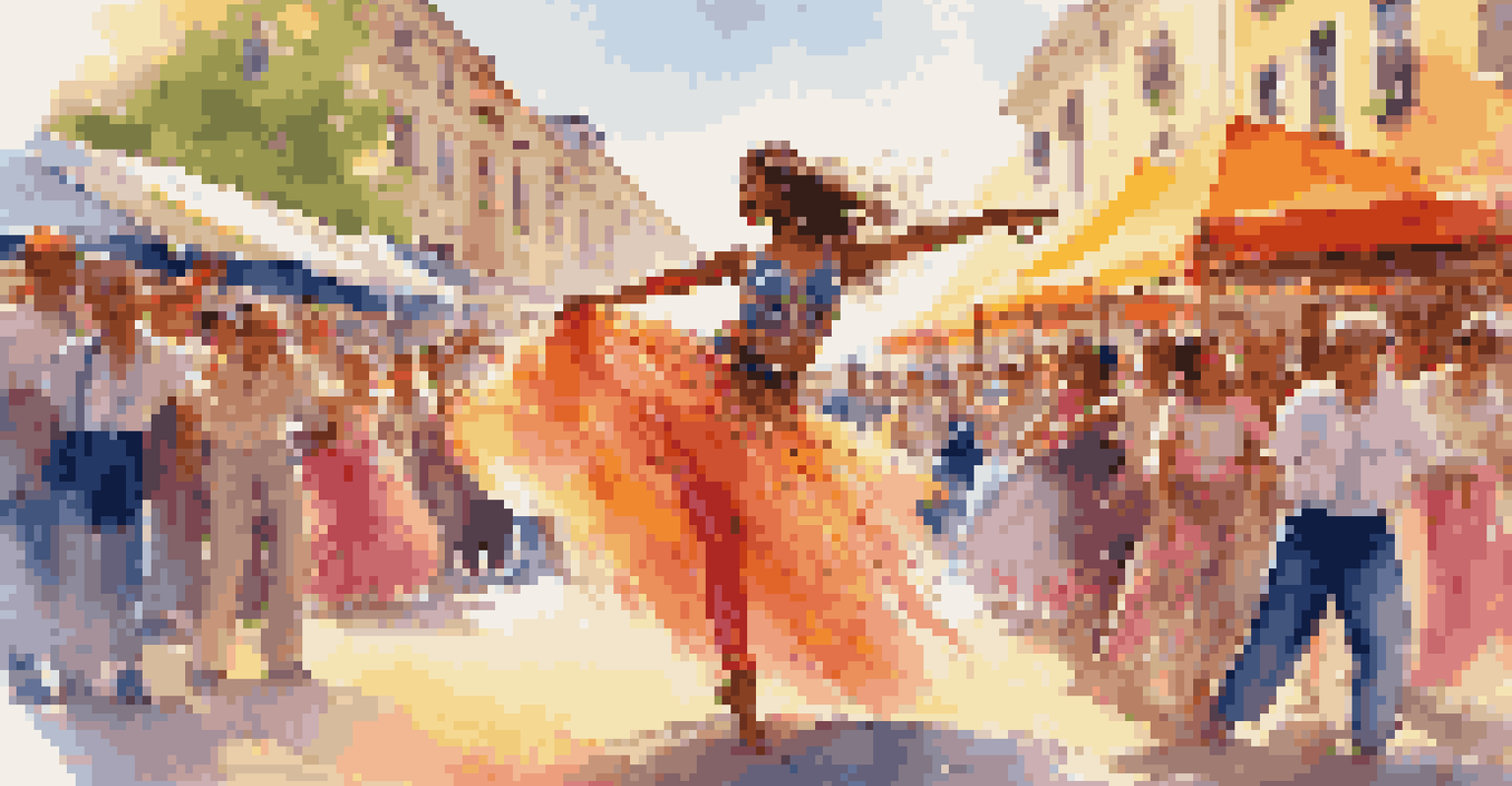How to Prepare for a Dance Festival: Tips for Dancers

Start with a Solid Dance Routine Practice Schedule
Creating a consistent practice schedule is crucial for any dancer preparing for a festival. This routine should include daily rehearsals, focusing on technique and choreography. By dedicating specific time slots for practice, you ensure that you’re building muscle memory and boosting your confidence.
Success is where preparation and opportunity meet.
Consider setting short, achievable goals for each practice session. For example, aim to perfect a particular move or section of your routine each day. This not only keeps you motivated but allows you to track your progress effectively.
Don’t forget to include rest days in your schedule! Just as important as practice, resting allows your body to recover, preventing injuries and ensuring you’re at your best when the festival arrives.
Choose the Right Costume and Accessories
Your costume is an extension of your performance, so choosing the right outfit is key. Make sure it fits well and allows you to move freely while expressing your style. Consider the festival’s theme and the vibe of your dance when selecting colors and designs.

Also, think about accessories that enhance your performance. Whether it’s a pair of sparkly earrings or a dramatic headpiece, the right accents can add flair to your look. However, make sure they don’t hinder your movements or become a distraction.
Establish a Consistent Practice Routine
Creating a steady practice schedule helps build muscle memory and confidence while preparing for a dance festival.
Lastly, always try on your complete costume well before the festival. This way, you can make any necessary adjustments and ensure everything feels comfortable during your performance.
Stay Hydrated and Maintain a Balanced Diet
Proper nutrition and hydration are essential for dancers, especially leading up to a festival. Drinking enough water keeps your body functioning optimally and helps prevent fatigue. Aim for at least eight glasses of water daily, and consider your fluid intake during practice as well.
The more you practice, the better you get, the more freedom you have to create.
In terms of diet, focus on a balanced mix of carbohydrates, proteins, and healthy fats. Carbs fuel your energy, while proteins aid in muscle recovery. Incorporating fruits and vegetables ensures you get the necessary vitamins and minerals to keep your immune system strong.
Remember, what you eat impacts your performance. So, avoid heavy meals right before practice and opt for lighter snacks to keep your energy levels up without feeling sluggish.
Warm-Up and Cool Down Properly
Warming up is a vital part of your preparation for any dance performance. It increases blood flow to your muscles and reduces the risk of injury. A good warm-up routine could include gentle stretching, light cardio, or even some basic dance moves to get your body ready.
Equally important is the cool-down phase after your practice. This helps your muscles relax and recover faster. Incorporate stretches that focus on the areas you’ve worked the hardest, gradually bringing your heart rate back to normal.
Choose the Perfect Costume
Selecting a comfortable and stylish costume enhances your performance and aligns with the festival's theme.
By prioritizing these warm-up and cool-down routines, you set yourself up for a more effective practice and a better chance of performing at your best during the festival.
Mental Preparation and Visualization Techniques
Dance isn’t just physical; it’s also a mental game. Mental preparation can significantly enhance your performance, so take time to visualize your routine. Picture yourself executing each move flawlessly, feeling confident and in control.
Consider practicing mindfulness or meditation to help calm your nerves before the festival. Even a few minutes of deep breathing can help clear your mind and focus your energy. This mental clarity can make a huge difference when it’s time to perform.
Additionally, surrounding yourself with positive affirmations and supportive friends can boost your confidence. Remember, a strong mindset is just as important as physical readiness!
Rehearse in Your Festival Environment When Possible
If you have the chance, rehearsing in the actual venue where the festival will be held can be incredibly beneficial. Familiarizing yourself with the space will help you feel more comfortable and confident on the big day. Pay attention to the stage size, lighting, and sound setup.
If rehearsing at the venue isn’t possible, try to find similar environments to practice in. This could be a large studio or an outdoor space that mimics the festival’s atmosphere. The more you adapt to different conditions, the more confident you’ll feel.
Prepare Mentally and Logistically
Mental readiness and logistical planning are crucial for a successful performance, ensuring you feel confident and organized on festival day.
Additionally, practice your routine in front of friends or family for feedback. This not only helps you get used to performing for an audience but also allows you to refine your routine based on their input.
Plan Your Festival Day Logistics Ahead of Time
As the festival day approaches, planning your logistics is essential to avoid any last-minute stress. Decide what time you need to arrive, considering traffic and parking availability. Creating a timeline for the day can help you stay organized and ensure you don’t forget anything important.
Pack your dance bag the night before, including all essentials like your costume, shoes, accessories, and water. Having everything ready to go will save you time and reduce anxiety on the morning of the festival.

Lastly, consider the possibility of unexpected delays or changes. Keeping a flexible mindset and allowing extra time can help you navigate any surprises and maintain your focus on your performance.